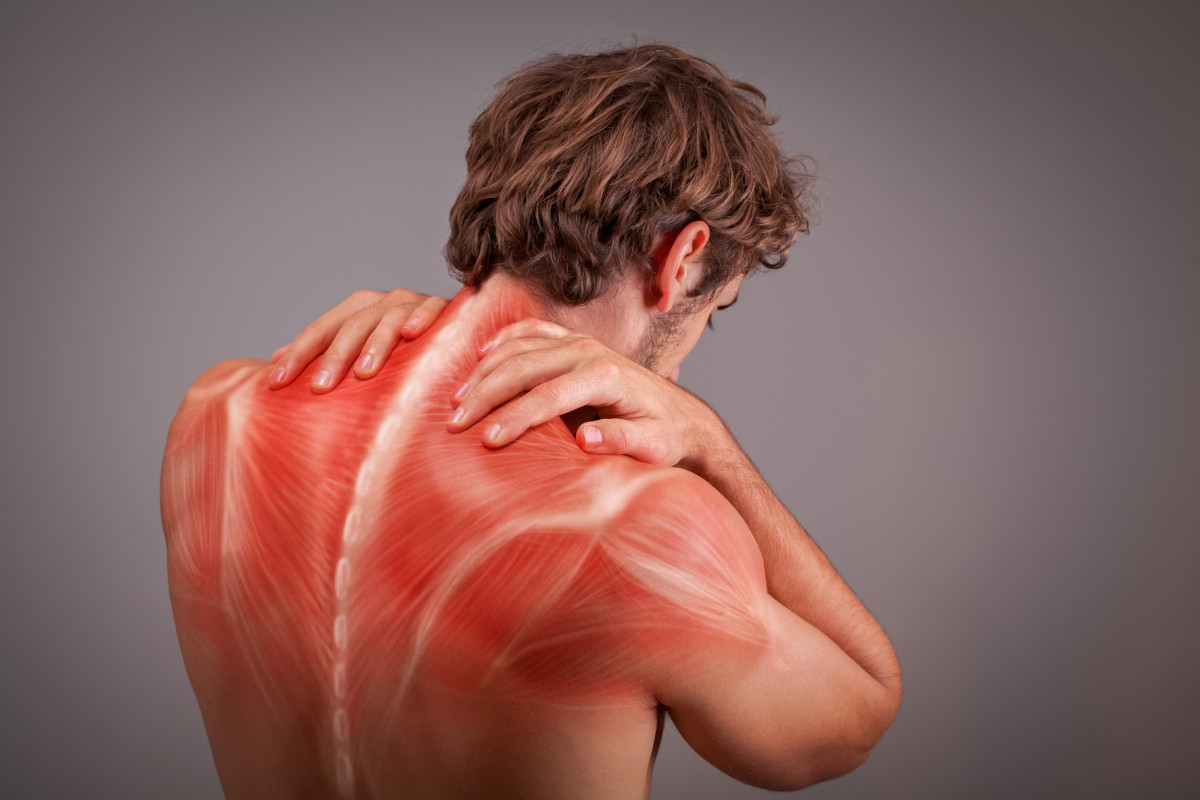Muscle Pain
Overview | Possible Causes | Care and Treatment | HOME REMEDies | When to Call the Doctor | References

Overview
Almost everyone has sore, aching muscles now and then. Muscle pain can involve a small area or your whole body, ranging from mild to excruciating.
Although most muscle aches and pains go away on their own within a short time, sometimes muscle pain can linger for months. Muscle pain can develop almost anywhere in your body, including your neck, back, legs and even your hands.
Possible Causes
What causes muscle pain?
Many things can cause muscle pain, including:
- Autoimmune diseases.
- Infections.
- Injuries.
- Medications.
- Neuromuscular disorders.
What autoimmune diseases cause muscle pain?
Autoimmune diseases occur when the body’s immune system mistakenly attacks itself. A healthy immune system fights off germs and infections.
Autoimmune diseases that cause muscle pain include:
- Inflammatory myopathies, such as inclusion body myositis and polymyositis.
- Lupus.
- Multiple sclerosis (MS).
What types of infections cause muscle pain?
Bacterial and viral infections can make you feel achy all over. Depending on the cause, you may also have swollen lymph nodes, fever and nausea.
Types of infections that cause muscle aches include:
- Colds and flu.
- Lyme disease and Rocky Mountain spotted fever (infections spread through tick bites).
- Malaria.
- Trichinosis (a foodborne illness).
What types of injuries cause muscle pain?
When you repeatedly use the same muscles at work or during exercise, you may develop sore muscles from overuse.
Other types of injuries that cause sore muscles include:
- Abdominal strains.
- Back strains and sprains.
- Broken bones and traumatic injuries.
- Myofascial pain syndrome from repetitive movements (overuse).
- Tendinitis.
- Tendinosis.
What medications cause muscle pain?
Certain medications and therapies can cause temporary or chronic pain. Some medicines cause inflammation around muscle cells (myositis) or activate muscle pain receptors. These treatments include:
- Cancer treatments, including chemotherapy and radiation therapy.
- High blood pressure medications, such as angiotensin-converting enzyme (ACE) inhibitors.
- Statins to lower cholesterol levels.
What neuromuscular disorders cause muscle pain?
Neuromuscular disorders affect muscles and the nerves that control them. They can cause muscle weakness and pain. These conditions include:
- Amyotrophic lateral sclerosis (ALS or Lou Gehrig’s disease).
- Muscular dystrophy.
- Myasthenia gravis.
- Spinal muscular atrophy (SMA).
What other conditions cause muscle pain?
Other conditions that also cause muscle pain include:
- Cancers, such as sarcomas (soft tissue cancers) and leukemia (blood cancer).
- Chronic fatigue syndrome.
- Compartment syndrome (a buildup of pressure in muscles).
- Fibromyalgia.
- Imbalance of electrolytes (minerals in your blood, such as calcium, magnesium, sodium and potassium).
- Hypothyroidism (underactive thyroid).
- Peripheral artery disease (PAD).
- Stress and tension.
Care & Treatment
How do healthcare providers diagnose muscle pain’s cause?
If you don’t know what’s causing muscle pain, or the pain is severe or chronic, your healthcare provider may order tests, such as:
- Blood tests to check enzyme, hormone and electrolyte levels and test for infections.
- MRI or CT scan to look for muscle injury or damage.
- Electromyography to measure electrical activity in nerves and muscles.
- Muscle biopsy to look for muscle tissue changes that may indicate neuromuscular diseases.
How is muscle pain managed or treated?
Depending on the cause, these steps may help you feel better:
- Rest and elevate the painful area.
- Alternate between ice packs to reduce inflammation and heat to improve blood flow.
- Soak in a warm bath with Epsom salts or take a warm shower.
- Take over-the-counter pain relievers (aspirin, acetaminophen, ibuprofen, naproxen).
- Try complementary therapies, such as massage, meditation or acupuncture.
Home Remedies
Muscle pain that occurs during an activity usually signals a "pulled" or strained muscle. These types of injuries usually respond well to R.I.C.E. therapy:
- Rest. Take a break from your normal activities.
- Ice. Place an ice pack or bag of frozen peas on the sore area for 20 minutes several times a day.
- Compression. Use a compression bandage to reduce swelling.
- Elevation. Elevate the injured area above the level of your heart, especially at night, which allows gravity to help reduce swelling.
When to Call the Doctor
You should call your healthcare provider if you experience:
- Chest pain.
- Fever.
- Loss of bladder control.
- Muscle weakness.
- New or worsening pain.
- Numbness or tingling in limbs.
Reference
- https://my.clevelandclinic.org/health/symptoms/17669-muscle-pain
- https://www.mayoclinic.org/symptoms/muscle-pain/basics/when-to-see-doctor/sym-20050866
- https://medlineplus.gov/ency/article/003178.htm






































































































